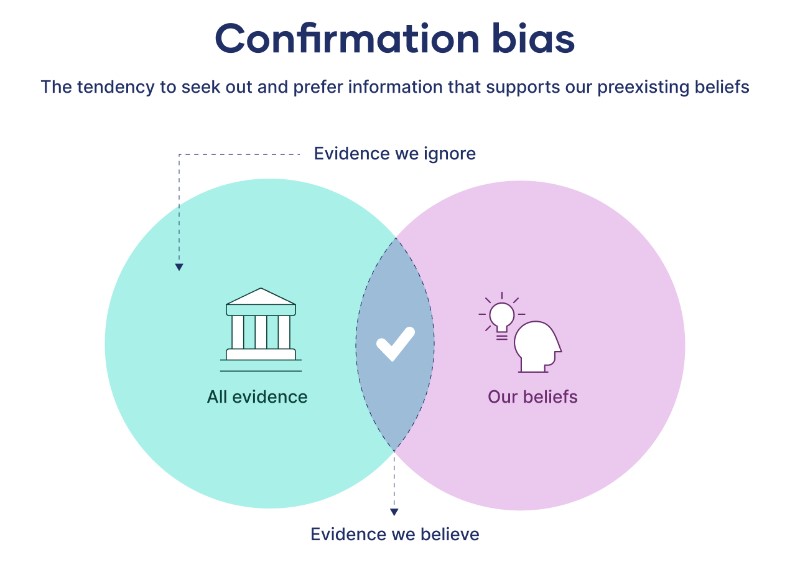Confirmation bias is a prevalent cognitive bias that affects our decision-making and perception of the world. It refers to the tendency to search for, interpret, and remember information that confirms our preexisting beliefs or values while disregarding or devaluing information that contradicts them. This bias can lead to a skewed and one-sided view of reality, hindering rational thinking and objective analysis.
Explanations:
Confirmation bias arises from a combination of factors, including our desire for coherence and consistency in our beliefs and the discomfort of cognitive dissonance. When we encounter information that aligns with our existing views, it feels comforting and reinforces our beliefs. On the other hand, confronting information that challenges our beliefs can be mentally distressing, leading us to avoid or dismiss such information.
Examples:
Political Beliefs: Suppose a person strongly identifies with a particular political party. They are likely to seek out news sources, social media content, and discussions that support their party’s views while avoiding or discrediting information from opposing parties, resulting in a skewed political perspective.
Health Misconceptions: If someone believes in a specific alternative medicine or diet, they may only look for success stories and anecdotal evidence that supports their choice while ignoring scientific research that disproves its effectiveness.
Investment Decisions: An investor might hold onto a losing stock position because they actively seek out news and opinions confirming that the stock will rebound, while ignoring evidence that suggests otherwise.
Solutions:
Be Aware of Your Biases: The first step in addressing confirmation bias is recognizing it. Understanding that this bias exists in human cognition is essential. Acknowledging your own tendencies can help you actively counteract them.
Diversify Your Information Sources: Make an effort to expose yourself to a variety of opinions, perspectives, and sources of information. Engaging with diverse viewpoints can help you gain a more comprehensive understanding of complex issues.
Challenge Your Beliefs: Encourage self-reflection and self-critique. Be open to the possibility that your beliefs might be wrong. Ask yourself why you hold a particular belief, and try to identify any evidence that might contradict it.
Fact-Check and Verify Information: Before accepting information as true, independently verify its accuracy. Fact-checking can help you avoid falling victim to false or biased information.
Incorporating these strategies into your decision-making process can significantly reduce the impact of confirmation bias on your thinking.
